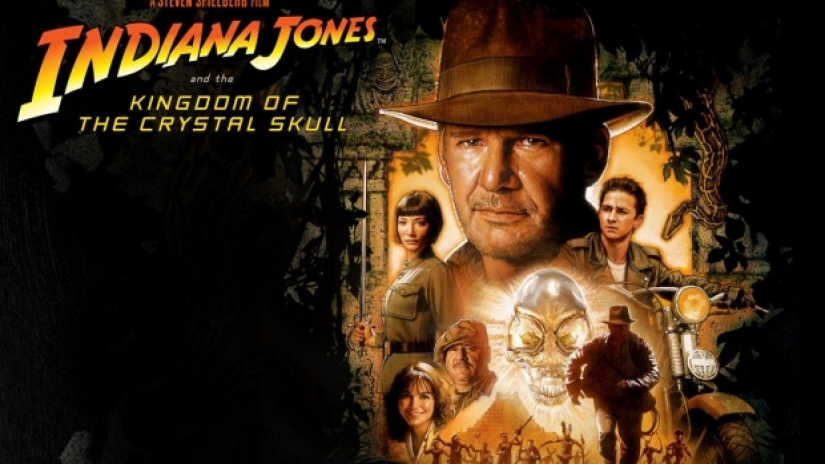On March 29, Steven Spielberg’s 32nd feature film, Ready Player One, will arrive in theaters. This is a significant debut to me personally for two reasons. One, I love the source material and Spielberg is undoubtedly the perfect choice to flesh out its magic on screen. Two, it’s a return to the kind of blockbuster filmmaking Spielberg made his name on and which we haven’t really seen from him in a decade or so. Anyone who knows me, has ever listened to this podcast, or has just been a stranger within ear reach of me in, like, a Quik Trip, knows I love Steven Spielberg. Spielberg is the definition of “director” to me. His filmography overflows with iconic, genre-defining, timeless films, many of which happen to be personal favorites. I’ve watched and studied Spielberg’s movies dozens and dozens of times to the point that I feel like I’ve graduated from the Steven Spielberg Film School and Professor Spielberg taught me everything I know about film, filmmaking, and film structure, not to mention human emotion.
So, as we prepare for Ready Player One, this felt like the perfect opportunity to go back through Spielberg’s entire filmography and rank his films. Now, listen, this is not a scientific study of Spielberg’s resume (which I would be glad to head up if there is grant money available). In an ideal world, we’d gather scores of Spielberg scholars, debate his films, and come up with the perfect algorithm to determine the proper order. Instead, it’s just me. I’ve watched all 31 films over the last few weeks and wrestled over their order as best I can. I’ll reveal my rankings over the course of this month, with the top ten dropping on the morning of Ready Player One’s debut.
This week, I present films 25-31 in the Spielberg Universe, a group of films that includes Spielberg’s very few actual bad movies, a couple that missed the mark by just a bit, and a couple of movies I just don’t personally care for. It should be noted that even this set of films, by my calculations Spielberg’s “worst”, have garnered 12 Oscar nominations and brought in almost two billion dollars. Not too shabby for the bottom of the barrel, right? Let’s kick this off with the movie I would most like to forget…
31. Indiana Jones and the Kingdom of the Crystal Skull (2008)
Rotten Tomatoes: 77%
Domestic Box Office (Total Box Office): $317M ($786M)
Oscar Nominations (Wins): 0
As someone who values the role of criticism in film and generally approves of Rotten Tomatoes’ existence, you could make a fairly compelling case against both just by pointing to Kingdom of the Crystal Skull. I saw this abomination TWICE in its opening weekend; first because of wild enthusiasm and excitement and second because I had suffered greatly, and I wanted all my friends to suffer as well. (This is what true friendship is all about.) I won’t go into the ideas of bastardizing a childhood favorite or anything of that nature as that line of thinking has grown tiresome. Instead, I’ll point out that even on its own, even without any ties to the original Jones trilogy, even discounting all nostalgia or emotional connection I have to those previous films, Kingdom is a downright wretched film filled with wretched acting and a wretched “plot”, the script for which should’ve been burned in a bonfire long before development ever began on this movie.
30. 1941 (1977)
Rotten Tomatoes: 33%
Domestic Box Office (Total Box Office): $31M ($92)
Oscar Nominations (Wins): 3
This is one of three Spielberg films I hadn’t seen until I began the work on this project. Its reputation precedes it, of course, as even Spielberg himself acknowledges it to be a misstep. 1941 is what we’d call a “heat check” in a basketball game. Spielberg is coming off of the unbelievable successes of Jaws and Close Encounters and he’s headed into the Raiders and E.T. and right there in the middle he thought he could do anything. This is his ill-advised 35-foot jumpshot, a very bad spoof comedy that didn’t play well in 1977 and plays so, SO much worse in 2018. There are just way too many rape-y dudes in 1941 and while I know the intent was to satirize the tropes of both war movies and frat house flicks, satire might be THE thing Spielberg can’t do. As a result, the whole movie just feels kind of gross and completely unnecessary.
29. War Horse (2011)
Rotten Tomatoes: 76%
Domestic Box Office (Total Box Office): $79M ($177M)
Oscar Nominations (Wins): 6
This is where I’d draw the line between “bad” and “hate”. Kingdom of the Crystal Skull and 1941 are actual bad movies; War Horse I just hate. I’d say I very hate War Horse if you’ll allow me the use of grammatically incorrect terminology. To be fair, I understand why others like this movie and I accept my place in the minority. (*Insert Tobias Funke, “There are dozens of us! Dozens!” gif*) There are some scenes and sequences within the movie, particularly the famous battlefield scene, that work quite well and I can see what attracted Spielberg to this property. But War Horse has two very big strikes against it in my book. Number one, I dislike horses. Yeah, I said it. If my livelihood depended on horses, I’m sure I’d figure out how to dislike them less. But as it stands, there are many great creatures on God’s green earth and horses aren’t one of them. So, you can see where a movie called War Horse might be a tough sell for me. Number two, and much more importantly, I think Jeremy Irvine is horrible in the lead role. His delivery on lines like, “Look ‘ere, Joey. I got a collar too” makes me cringe. This is, to me, the worst casting decision in any of Spielberg’s films, at least as far as top-billed performers go and it sinks the movie.
28. The Lost World (1997)
Rotten Tomatoes: 53%
Domestic Box Office (Total Box Office): $229M ($618M)
Oscar Nominations (Wins): 1
The Lost World is, I think, the only real “Paycheck Movie” of Spielberg’s career. Jurassic Park (nearly literally) ruled the world, the audience was salivating for more, Michael Cricton’s book was a huge success, and the money was too much to pass on. I’m sure there was a part of Spielberg that wanted to return to the magic of his previous film but by his own admission, he quickly became disenchanted with the sequel experience and the lack of passion shows in the finished product. It’s a really dumb movie, to be frank, and the characters within it make a lot of really dumb choices. On the plus side, The Lost World still looks great, dinosaurs are always fun, and it’s the sort of dumb that you mostly forget about the second the movie ends. I rewatched Lost World for the first time in a decade in preparation for this writing. Throughout the entire movie, I kept thinking, “This is really, really stupid. Everything happening here is stupid.” And then the movie ended and maybe three minutes later, I thought, “Eh, that wasn’t so bad.” That feels like an achievement on some level or another.
27. Always (1987)
Rotten Tomatoes: 65%
Domestic Box Office (Total Box Office): $43M ($74M)
Oscar Nominations (Wins): 0
Another of the three Spielberg movies I hadn’t seen before this writing. On paper, Always sounds very Spielbergian: The spirit of a deceased pilot reaches from beyond the grave to emotionally connect with his former lover. Insert a John Williams score and bam! You’ve got a Spielberg movie. In execution, however, I think Always feels foreign to the rest of the Spielberg universe. The spiritual force that allows Richard Dreyfuss’ character to connect with Holly Hunter’s character lacks some magic and there’s little charm to the movie as a whole. It doesn’t help that the medium through which the two leads interact, former Marlboro Man Brad Johnson, has all the screen presence of a ficus. Still, the scene settings are excellent, and Spielberg uses both Hunter and a young-ish John Goodman exquisitely.
26. Duel (1973)
Rotten Tomatoes: 88%
Domestic Box Office (Total Box Office): -
Oscar Nominations (Wins): -
The very first Spielberg movie, Duel was originally a made-for-TV-movie in 1971 that received a (mostly international) theatrical release two years later. Some of the terror of this movie has been mitigated over the last 45 years but the pace with which Spielberg draws out the simple plot works just as well now as it did in 1973. Dennis Weaver does an admirable job of conveying his character’s descent into madness but it’s the camera work that really brings home the true horror of the situation.
25. A.I. Artificial Intelligence (2001)
Rotten Tomatoes: 73%
Domestic Box Office (Total Box Office): $78M ($235M)
Oscar Nominations (Wins): 2
I hated this movie the first time I saw it. HATED it. Up to that point, I had never, even with Saving Private Ryan, even with Schindler’s List, walked out of a Spielberg movie feeling depressed like I was coming out of A.I. IT’S JUST SO BLOODY BLEAK. I wrote A.I. off as a Kubrick movie that Spielberg brought to screen as-is out of respect for his late friend and essentially pretended it didn’t exist until this writing. On second viewing, I confess I still don’t particularly like the movie but I understand it much more now than I did 17 years ago. I see the hints of Spielberg, even in the segments he himself says are entirely Kubrick’s design, and (*unpopular opinion alert*) I think Spielberg got the best performance out of Haley Joel Osment, even more so than his Oscar-nominated work in Sixth Sense. It’s still not an enjoyable movie and the final 20 minutes is rife with problems but somewhere in there I found myself connected to David in a way I wouldn’t have thought possible. That sense of attachment has Spielberg’s fingerprints all over it.







